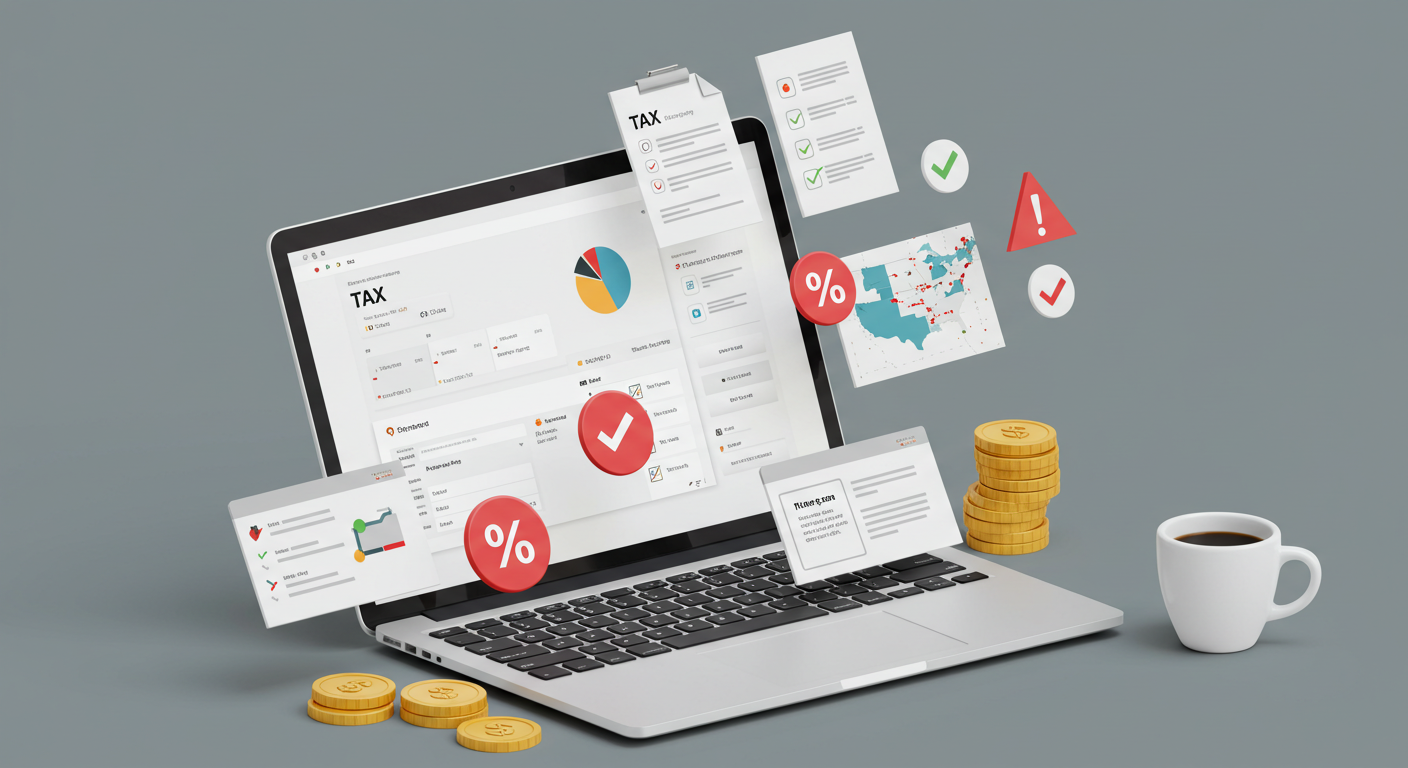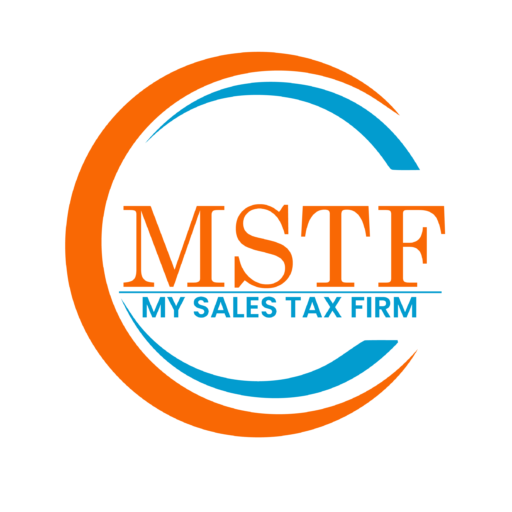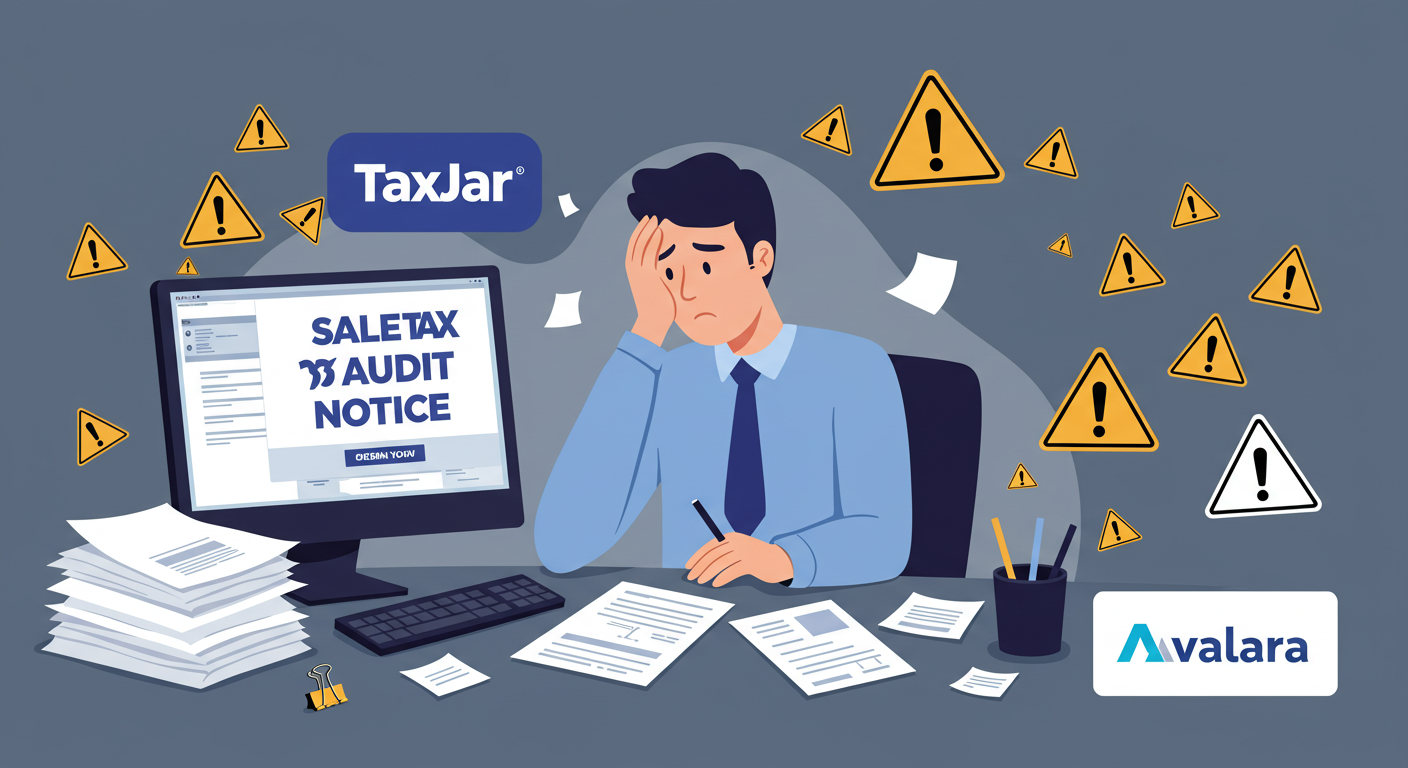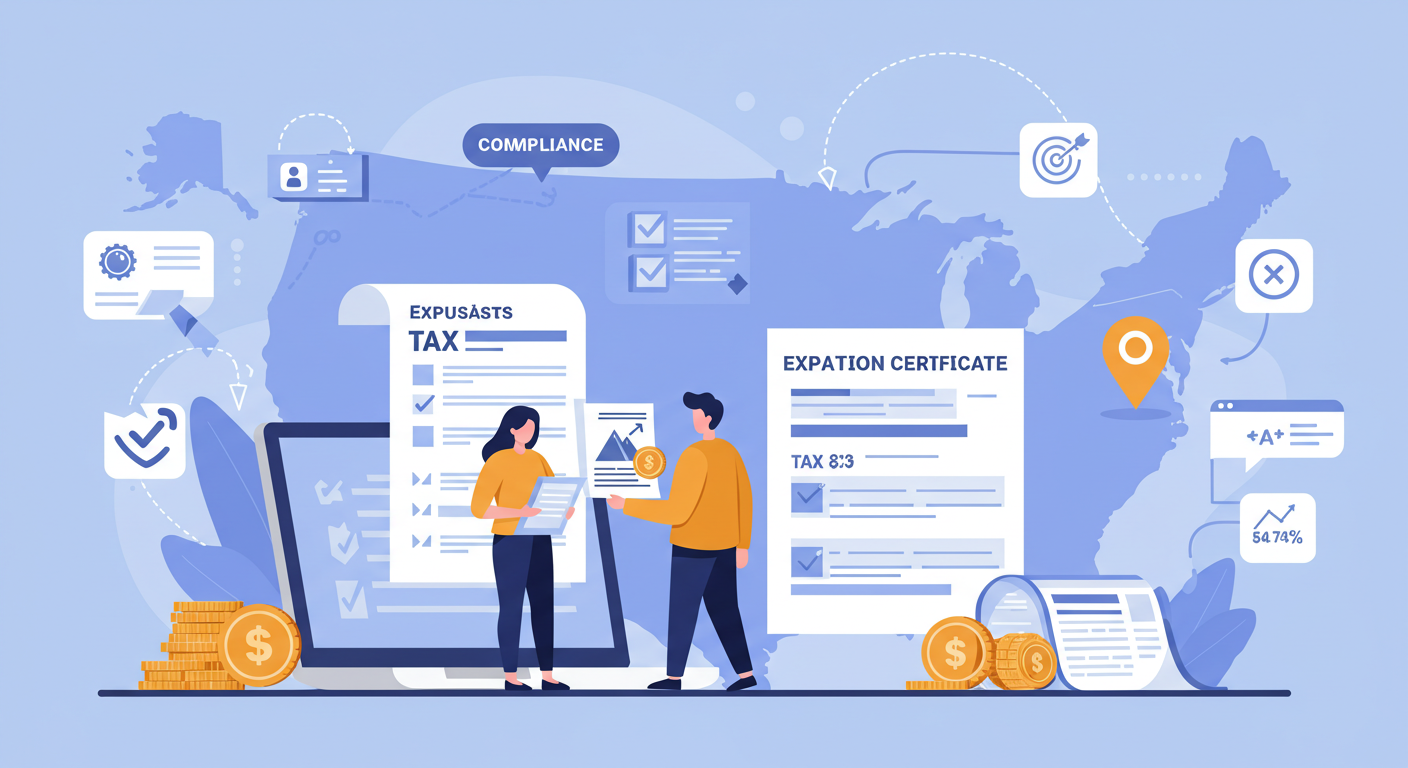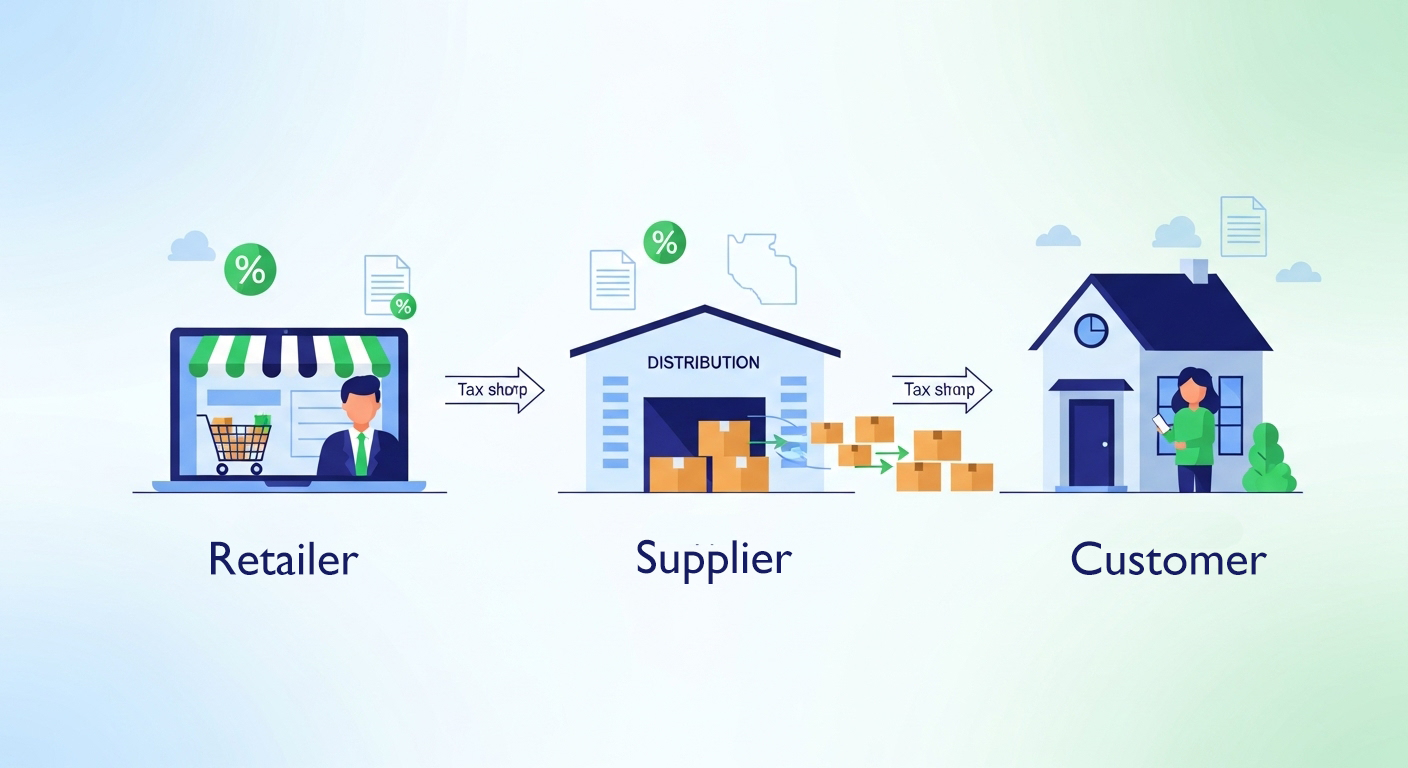Running a small business today means juggling countless responsibilities, and sales tax compliance shouldn’t keep you up at night. Yet many business owners discover they’ve unknowingly crossed economic nexus thresholds without realizing the legal implications. This comprehensive guide will help you understand these critical thresholds and ensure your business stays compliant.
Understanding Economic Nexus in Plain English
Think of economic nexus thresholds as invisible tripwires scattered across state lines. Cross one, and suddenly you’re responsible for collecting and remitting sales tax in that state. Unlike physical nexus, where you need a brick and mortar presence, economic nexus kicks in based purely on your sales volume or transaction count.
The concept emerged from the landmark 2018 Supreme Court case South Dakota v. Wayfair, which revolutionized how states can tax remote sellers. Before Wayfair, you only collected sales tax where you had a physical presence. Now, your virtual footprint matters just as much as your physical one.
What Triggers Economic Nexus Thresholds
Economic nexus thresholds typically revolve around two key metrics. First, gross sales revenue within a state during a specified period, usually the current or previous calendar year. Second, the number of separate transactions conducted with customers in that state.
Most states use the $100,000 sales threshold established by South Dakota in the original Wayfair case. However, some states set higher bars. Texas, for instance, requires $500,000 in sales before triggering economic nexus obligations.
The transaction component adds another layer of complexity. Many states initially required both sales and transaction thresholds to be met. However, as of 2025, numerous states have eliminated the 200-transaction requirement, simplifying compliance for small businesses.
State by State Economic Nexus Breakdown
Navigating economic nexus thresholds requires understanding that each state sets its own rules. While most follow similar patterns, the devil lurks in the details.
Common Threshold Patterns
The majority of states maintain the $100,000 annual sales threshold. States like Arizona, California, and Florida follow this standard. These thresholds typically measure gross sales over the current or previous calendar year.
Some states maintain dual requirements. New York requires both $500,000 in sales AND 100 separate transactions. This means meeting one threshold without the other doesn’t trigger nexus obligations.
States with Higher Thresholds
Several states set higher bars for economic nexus. Texas leads with its $500,000 sales requirement, making it more business friendly for smaller operations. This higher threshold provides breathing room for growing companies that might otherwise struggle with multiple state compliance requirements.
California maintains its $100,000 threshold but applies it broadly across various business types. The state’s complex local tax jurisdictions add additional compliance challenges once you cross the threshold.
Recent Changes and Trends
The landscape continues evolving rapidly. Throughout 2025, fifteen states eliminated their transaction thresholds, streamlining compliance. Alaska removed its 200-transaction requirement effective January 1, 2025, joining this growing trend.
These changes generally favor small businesses by reducing administrative burdens. Tracking individual transactions across multiple states created significant bookkeeping challenges for resource-constrained small business owners.
How to Calculate Your Economic Nexus Exposure
Determining your economic nexus obligations requires systematic analysis of your sales data. Start by gathering comprehensive sales records for each state where you have customers.
Revenue Tracking Methods
Create separate tracking systems for each state’s sales data. Include all taxable sales, but understand that some states exclude certain transactions from their threshold calculations. For example, some states don’t count wholesale transactions toward retail nexus thresholds.
Consider both the current calendar year and the previous year when calculating thresholds. Many states trigger nexus based on either period, meaning you could establish obligations mid year based on prior year activity.
Transaction Counting Considerations
For states still maintaining transaction thresholds, count each separate sale as one transaction. Multiple items in a single order typically count as one transaction, while separate orders from the same customer count individually.
Be aware that refunds and returns can complicate these calculations. Some states provide specific guidance on how to handle returned merchandise in threshold calculations.
Common Calculation Mistakes
Many businesses underestimate their exposure by excluding certain sale types. Digital products, services, and shipping charges often count toward thresholds even when they’re not subject to sales tax in your home state.
Another frequent mistake involves timing. Some businesses only track current year activity, missing prior year obligations that might still apply. This oversight can lead to unexpected compliance requirements and potential penalties.
The Hidden Costs of Crossing Economic Nexus Thresholds
Crossing economic nexus thresholds triggers immediate compliance obligations that extend far beyond simple tax collection. Understanding these costs helps you prepare financially and operationally.
Registration and Setup Expenses
Each state requires formal registration before you can legally collect sales tax. Registration fees vary widely, from free in some states to several hundred dollars in others. The process involves paperwork, documentation, and often waiting periods before approval.
Consider the administrative time required for registration across multiple states. Each jurisdiction has unique requirements, forms, and processing procedures that demand attention to detail.
Ongoing Compliance Costs
Monthly or quarterly filing requirements create recurring administrative burdens. Each state has different filing schedules, due dates, and payment procedures. Missing deadlines triggers penalties that can quickly accumulate.
Software solutions help manage multi state compliance but come with subscription costs and setup time. Even with automation, you’ll need oversight to ensure accuracy and handle exceptions.
Professional Service Considerations
Many small businesses discover that managing multi state sales tax compliance exceeds their internal capabilities. Professional tax services become necessary investments rather than optional expenses.
The complexity increases exponentially with each additional state. What seems manageable for one or two states can become overwhelming when dealing with five, ten, or more jurisdictions.
Technology Solutions vs Professional Guidance
The sales tax software market offers numerous solutions promising to simplify compliance. While technology certainly helps, understanding its limitations prevents costly mistakes.
Software Capabilities and Limitations
Modern sales tax software excels at rate calculations and basic filing functions. These systems integrate with popular e-commerce platforms and accounting software, automating much of the collection process.
However, software struggles with complex scenarios. Unusual products, mixed use items, and jurisdiction edge cases often require human interpretation. Software also can’t provide strategic planning advice or help you optimize your nexus footprint.
When Professional Help Becomes Essential
Complex business models demand professional guidance. If you sell both products and services, operate in multiple channels, or have unique customer arrangements, software alone may prove insufficient.
Professional tax consultants bring experience with edge cases and regulatory nuances that software can’t replicate. They also provide strategic planning to minimize future compliance burdens as your business grows.
Tax professionals stay current with changing regulations and can alert you to new developments affecting your business. This proactive approach prevents costly surprises and keeps you ahead of compliance requirements.
Common Economic Nexus Compliance Mistakes
Small business owners frequently make preventable errors when dealing with economic nexus obligations. Learning from others’ mistakes saves time, money, and stress.
Threshold Monitoring Failures
Many businesses only discover nexus obligations after significantly exceeding thresholds. This delay creates retroactive compliance issues and potential penalty exposure. Regular monitoring prevents these unpleasant surprises.
Some business owners assume thresholds reset annually, missing the fact that many states use rolling twelve month periods or previous calendar year triggers. This misunderstanding can create gaps in compliance timing.
Multi State Registration Confusion
Each state’s registration process has unique requirements and timelines. Some business owners attempt to handle multiple registrations simultaneously, leading to errors and delays. A systematic, state by state approach proves more effective.
Documentation requirements vary significantly between states. Maintaining organized records for each jurisdiction prevents delays and ensures smooth registration processes.
Filing and Remittance Errors
Different states have varying filing frequencies and due dates. Some require monthly filing regardless of tax collected, while others allow quarterly or annual filing for smaller amounts. Mixing up these requirements creates compliance issues.
Payment processing varies between states as well. Some accept credit cards, others require bank transfers, and many have different processing timelines. Understanding each state’s preferred payment methods prevents last minute scrambling.
Strategic Planning for Multi State Growth
Smart businesses plan their expansion strategy with sales tax implications in mind. This forward thinking approach minimizes compliance complexity while maximizing growth opportunities.
Nexus Management Strategies
Consider concentrating initial expansion efforts in states with higher thresholds or more favorable compliance requirements. This approach allows you to build revenue in select markets before triggering widespread obligations.
Some businesses strategically limit marketing or sales activities in certain states to avoid crossing thresholds. While this may constrain growth in the short term, it can simplify operations during critical business development phases.
Timing Expansion Decisions
Plan major marketing campaigns and expansion efforts with threshold implications in mind. Launching aggressive advertising in multiple states simultaneously can trigger numerous nexus obligations at once, overwhelming your compliance capabilities.
Consider staging expansion over multiple tax periods to spread out registration and setup costs. This approach also allows you to learn from initial compliance experiences before expanding further.
Building Scalable Systems
Invest in systems and processes that can handle multi state compliance from the beginning, even if you’re not currently obligated in multiple states. Retrofitting compliance systems becomes more expensive and disruptive than building scalability upfront.
Train your team on sales tax implications early in your growth curve. Understanding these concepts prevents costly mistakes and ensures everyone considers tax implications in their daily decisions.
The Value of Professional Sales Tax Guidance
While technology tools and self education certainly help, the complexity of modern sales tax compliance often demands professional expertise. Understanding when to seek help prevents costly mistakes and provides peace of mind.
Complex Business Situations Requiring Expertise
Businesses with unique product mixes, multiple sales channels, or complex customer relationships benefit significantly from professional guidance. These scenarios often involve interpretive challenges that exceed software capabilities.
Professional consultants also provide valuable strategic planning services. They can help you structure operations to minimize compliance burdens while maximizing growth opportunities.
Staying Current with Changing Laws
Sales tax regulations evolve continuously. New court cases, legislative changes, and administrative rulings constantly reshape compliance requirements. Professional tax advisors monitor these developments and alert clients to relevant changes.
This proactive monitoring proves especially valuable during periods of rapid business growth. What worked last year may not apply to this year’s expanded operations.
Risk Management and Audit Defense
Professional tax consultants provide crucial support during sales tax audits. Their expertise helps navigate complex audit procedures and ensures your rights are protected throughout the process.
Even businesses that handle routine compliance internally often benefit from professional support during audits or complex compliance questions. This selective use of professional services balances cost control with risk management.
Conclusion
Economic nexus thresholds represent one of the most significant compliance challenges facing small businesses today. While the concept may seem straightforward, the practical implementation involves numerous complexities that can trap unwary business owners.
Understanding these thresholds, monitoring your exposure, and implementing appropriate compliance systems protects your business from costly penalties and legal issues. Whether you choose to handle compliance internally or work with professionals, staying informed and proactive remains essential.
The sales tax landscape continues evolving rapidly, with new changes affecting businesses regularly. What seems manageable today may become overwhelming as your business grows and expands into new markets.
Don’t let sales tax compliance derail your business success. The experts at My Sales Tax Firm offer free consultations to help you understand your obligations and develop effective compliance strategies. With their guidance, you can focus on growing your business while ensuring you meet all legal requirements.
Contact My Sales Tax Firm today for your free consultation and discover how professional guidance can simplify your sales tax compliance journey.
